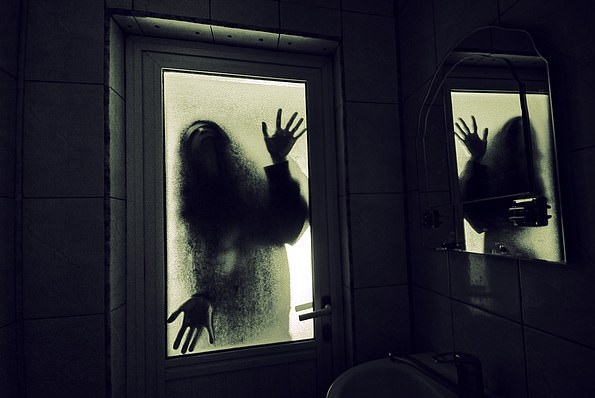Why humans love horror: Study on haunted house attendees reveals harmless scares induce a ‘high state of emotional arousal’
The horror genre has long maintained its popularity despite fear otherwise being a negative experience.
According to new research, this may be in part because horror entertainment gives us a sense of control over our fears and stimulates the emotions, according to Daily Mail.
In one of several recent studies designed to shed light on the phenomenon, the researchers analyzed the mental tactics used by haunted house attendees to either maximize or reduce their fear.
In the study, Mathias Clasen from Aarhus University in Denmark surveyed 280 haunted house visitors after asking them to focus on taking control of their fear.
This revealed stark contrasts between participants who were asked to minimize their own fear, and those instructed to boost it.
All participants, however, got physically closer to the other people in their group.
‘It was striking that the same gesture of seeking physical proximity can work in those diametrically opposed ways,’ Clasen said.
According to the researcher, the participants who were instructed to maximize their fear ultimately reported more enjoyment than the other group, despite being more scared.
The findings suggest horror films or similar experiences help thrill-seekers feel as though they’re overcoming simulated danger.
‘When people report that they were more scared, they may not mean they were scared for their life, but enjoying a high state of [emotional] arousal, rather than pure fear,’ Garriy Shteynberg at the University of Tennessee said.
Recent research has helped paint a better picture of the mechanisms that control fear in the human brain, and some scientists are even working to eradicate it.
A study published in 2017 claimed to have discovered a way to erase fear memory from the brain.
In the study, researchers in Japan created bursts of ‘destructive oxygen’ to inactivate specific responses in the hippocampus of mice.
This region is involved in memory and navigation, and the work may have implications for human treatments, as similar techniques have been proposed with hopes they can one day help treat PTSD and other memory-related disorders.
N.H.Kh

